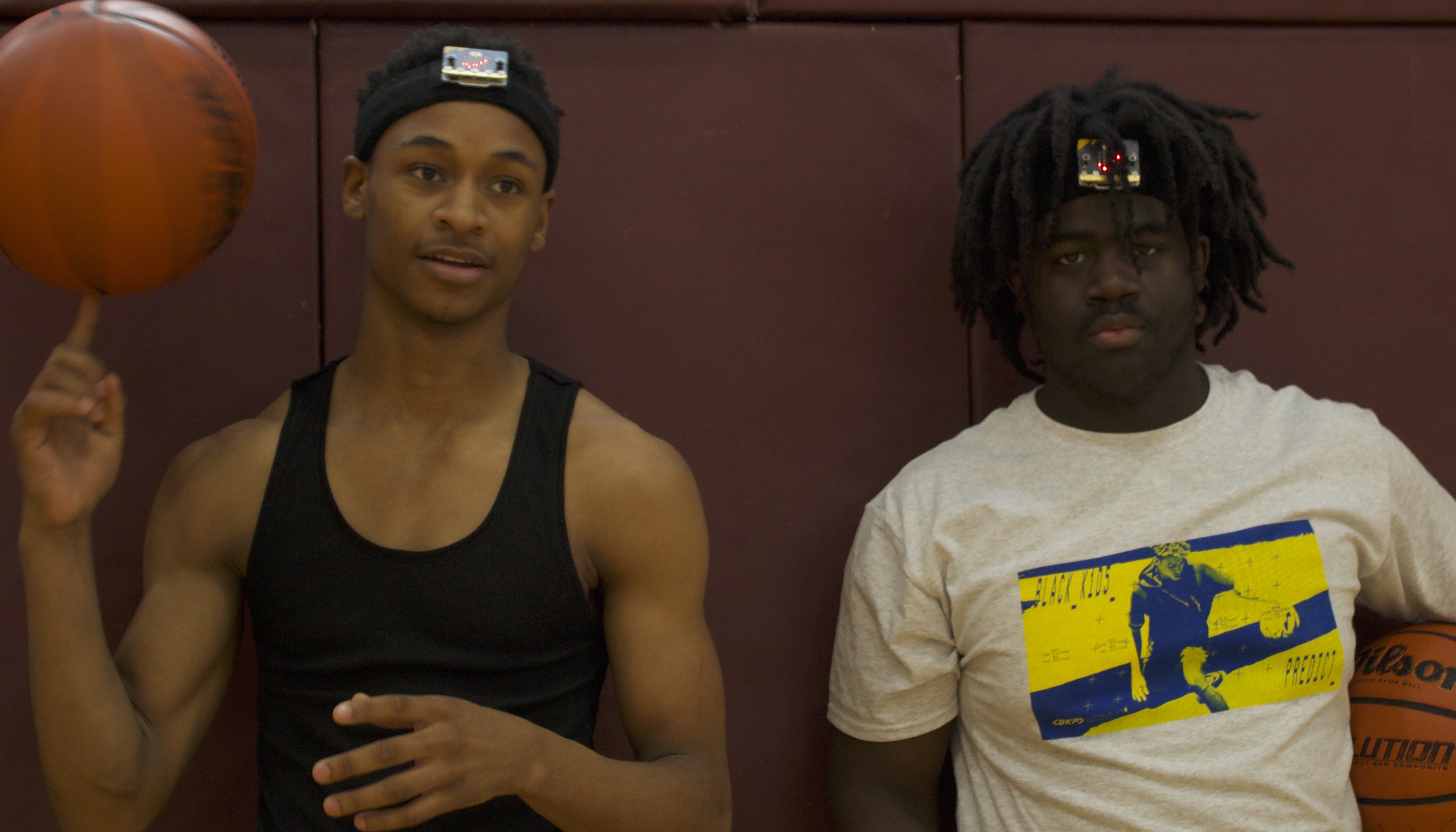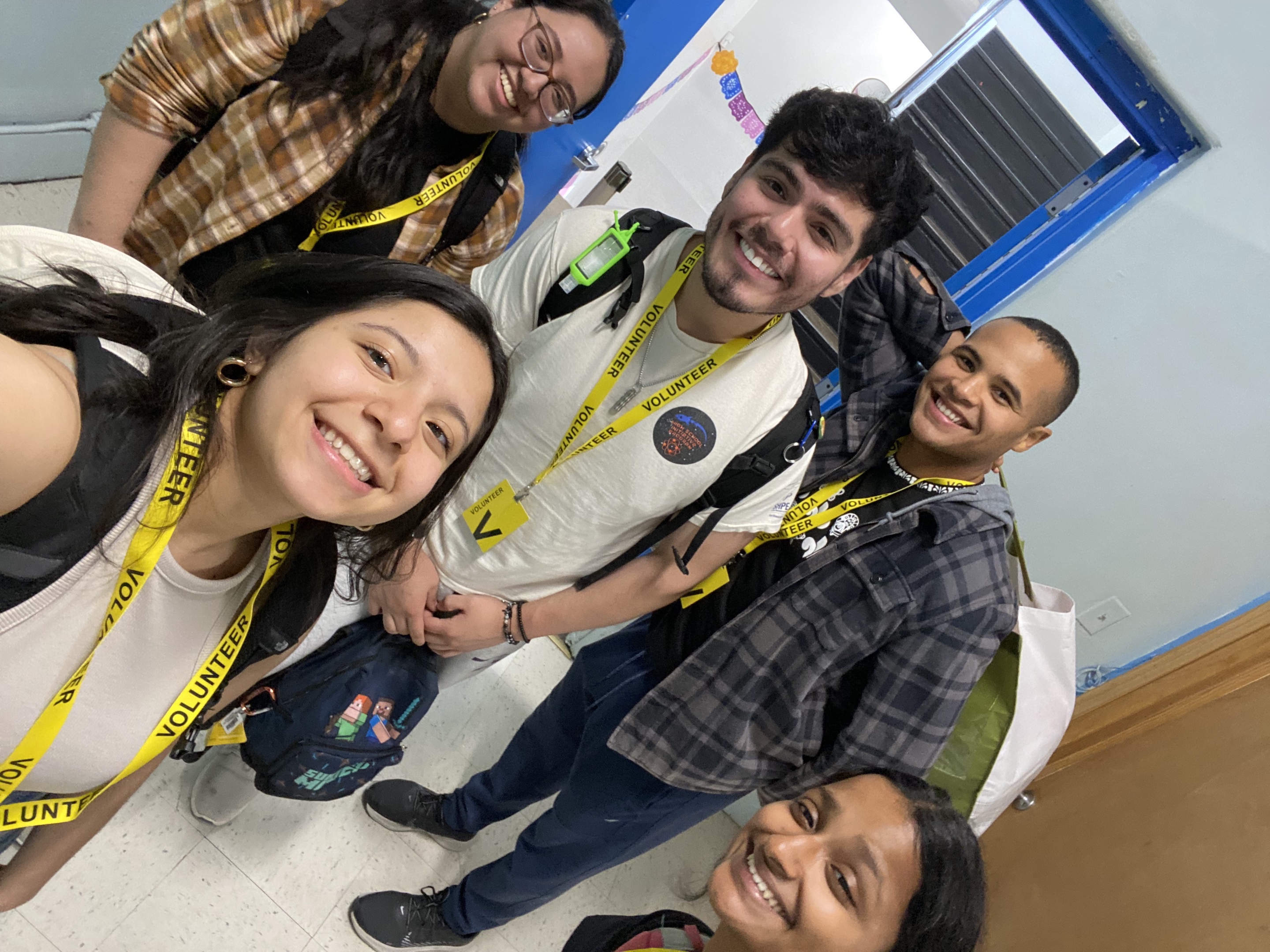Supporting data science education through grant to Black Kids Predict
Published July 12, 2023
Learning and schooling are two very different things, especially when it comes to the curriculum of Black Kids Predict (BKP). A standard computer science class might attract the attention of a handful of students, but an afterschool program centered around helping student athletes improve their performance through wearable sensors and data analytics leads to much higher engagement. Connecting passion to learning is at the core of what BKP does.

Marcelo Worsley, an associate professor of computer science and learning sciences at Northwestern, is the founder of the program. BKP is devoted to connecting data science and computer science with students’ interests. Kids in the program play with and build off of existing sports technologies like sensor-enabled basketballs and LED-equipped headbands that encourage strong communication on the court.
They then think critically about how they can improve their athleticism with such tools. Although sports is the only vertical of the program right now, Worsley is hoping to scale it to include everything from fashion to politics.
“I used to spend time in a media arts class where students worked on a variety of projects with Photoshop, laser cutting, 3D printing, and games like Minecraft,” he said. “What I found for a number of students, particularly students of color in that class, was that a lot of them did projects connected to sports. To me, that signaled that students were looking for opportunities to connect their learning to something they’re passionate about.”
Worsley also hopes that the program can break down walls among harmful social stereotypes like the jock, nerd and geek. "Some of these stereotypes are particularly felt by Black student athletes who might encounter negative peer comments that see being geeky, Black, and athletic as a paradox. “We’re looking at addressing these things head on and creating a space where that identity as an athlete is seen as an asset and something that really contributes to the learning space.”
With the help of a generous grant from the Motorola Solutions Foundation, BKP hosts a variety of afterschool and weekend sessions throughout the year, including afterschool programming at local community centers. The grant allows BKP to purchase equipment for the students and pay the Northwestern undergraduate students who mentor the sessions.
Herminio Bodon, a third-year PhD student in technology and social behavior, assists with mentoring and developing curriculum across all of BKP’s programming. This spring, he’s working with BKP’s afterschool programs in the Chicago neighborhoods of Little Village and Austin.

“In the sort of communities I work with, they have this dislike for classrooms and formal schooling,” he said. “One thing I enjoy a lot is helping them discover that schooling is not the same as learning. You can have that passion for learning and trying to figure things out on your own. Learning is not only defined by being in a classroom and having a midterm or a final. I enjoy it a lot when kids come to the realization that they can keep learning on their own.”
The Motorola Solutions Foundation has a long-standing commitment to supporting programs like BKP that benefit underrepresented populations and aims to partner with organizations that align with its values of innovation, impact, diversity and inclusion. For many of the mentors, their cultural, racial, and ethnic identities connect well with the students, many of whom come from Black and Latine neighborhoods.
The ultimate goal of BKP isn’t to convince kids to take up a career path in data science or computer science, though some do use it as a springboard to do so. Rather, it’s to bridge the gap between everyday life and computer science.
“It’s not about the youth deciding to pursue traditional careers in this computer science, it’s more about trying to equip them with an additional lens that they can use to look at their world, an additional set of tools they can use to support their athletic performance,” Worsley said. “Computer science used to be treated as this single, monolithic, boring thing. We want to make sure that the next generation is given access to some exciting experiences with computer science and not feel like it’s something that can’t be for them.”